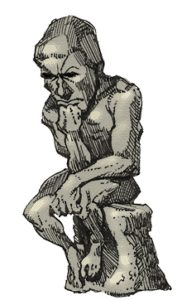Strategy is one of those fat words that seem to carry so much meaning–or maybe so many meanings–that the word starts to feel less and less useful. I used to think that strategy was about picking which battles to fight and that tactics was about how to fight a particular battle. That definition sounds pretty clear, but applying it can be tricky. After all, if you lose the battle, that’s a strategic failure, even if the loss was triggered by a tactical choice that seemed inconsequential at the time.
We recently posted an essay about the decline of Target over the past few years (Story Failure). There were a number of strategic initiatives that failed during that time–the crash of the website during the Missoni launch, for example, or the expansion into Canada, which has so far cost the company $1.6 billion. And then, of course, there was the massive breach of credit-card data last fall. Most marketers would not consider the processing of payments strategic unless the system fails. Which just underscores my problem with that original definition of strategy.
Some years ago, I went to a summer program at Stanford Business School, where the professor teaching the strategy module offered a different definition, one that I found both frustrating and useful at the same time. He said that, after years of wrestling with the question, he had come to the conclusion that the only meaningful synonym for the word strategic is consequential. From this point of view, any choice can be strategic if it ends up having a decisive impact on the outcome of an important initiative or operation. The problem, of course, is that you never know which choices are going to be strategic until it’s too late.
I was discussing this conundrum with my partner, Jim, and he pointed out that story works differently than war or science in this regard. In the war metaphor, a tactic is less important than the overall strategy–until it’s not. In the science metaphor, the hypothesis is more important than the research methodology–until some seemingly minor glitch in the methodology undermines the validity of the conclusion. In a good story, however, every choice is strategic. That is to say, every action and every word of dialogue must lead the audience to the meaning of the story. Everything the storyteller does that does not help to make the meaning clear necessarily makes it muddier.
It’s the same as saying that everything a brand does either adds value to the equity bank or spends it. What I love about story–as distinct from war or science–is that you don’t have to wait until the battle is over to decide what’s really important. Story provides an organizing principle, in a way that the human brain is very well tuned to discern, for determining what is in character for a brand and what is not. When you use story as a strategic tool for decision making, whatever you do–the products you develop, the promotions you offer, the advertising you place–is more likely to be in character with the brand. Your customers will have an easier time discovering the meaning of the brand, that discovery will lead them to feel connected to it, and that connection may even lead them to forgive some of your failures as long as they can see that the effort was in character with the brand in the first place.
